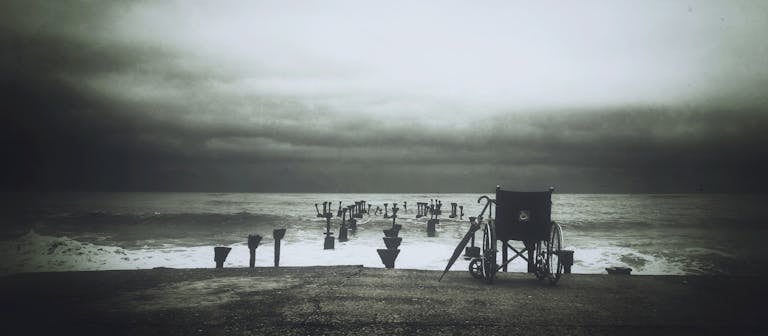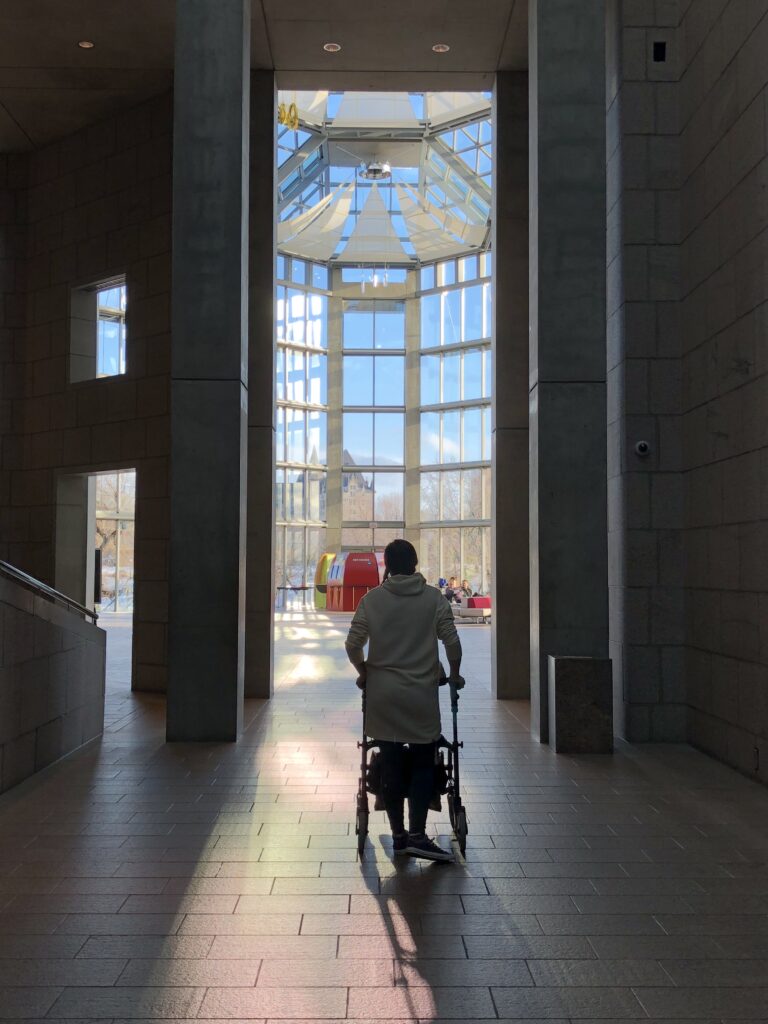The Harm of Self-Stigmatization
By Jack L. Mace
“We’ve been apart too long,” I told my brother Ron as we embraced for the last time before he died.
Ron and I had been estranged for most of our adulthood.
“Yes we have,” Ron agreed through the fogginess and illness of his final weeks with ALS. “This visit has been so good.”
I’m told that as toddlers Ron and I were inseparable and that as the youngest I was doted on by my other older siblings. Despite these heartwarming accounts, I seldom felt belonging or security in my family; my childhood was defined by conflict. You see, I’ve lived all my life with Attention Deficit Disorder (ADD). When I entered kindergarten in 1949 few doctors, mental health professionals, teachers, or parents were familiar with ADD (or ADHD). Students were either “good” kids or “bad” kids – there was not yet a medical explanation for my behaviors and understand of the way in which my brain was genetically hard-wired. For me, ADD manifested itself in several forms. I was overly attentive to stimuli, struggled with impulsivity control, and had a volatile temper. You’d be correct to assume that under these circumstances, I wasn’t treated well by other kids. Either excluded or provoked by classmates, I was frequently involved in fights. If there was a black eye on campus – I was usually wearing it or had inflicted it! With few exceptions, I was also disliked by my teachers. Overall, I felt rejected by peers, teachers, and family. My childhood was defined by conflict and tension.
Even today at the age of 70, I still seldom leave home without an uneasy feeling.
ADD persisted into adolescence. In attempts for self-preservation, I distanced myself from family and friends. Naturally a talkative boy, I became a withdrawn and quiet teenager. Keeping silent seemed better than opening my mouth and getting into a fight…. a sad reality experienced in childhood. At this time, I also began internalizing the negative attitudes I was subjected to by others. As these negative beliefs took root within me, I decided that most people in my life, especially Ron, just didn’t like me. Through the lens of my negative self-stigmas, I witnessed constant “signs” that reinforced these (false) beliefs.
I see now that self-stigmatization shaped my adult relationships with my family and explain why I avoided contact with Ron. Even though frequent travel for business took me within two miles of his home, I made a point not to stop and “disturb” him. This intentional avoidance was painful. At times, I drove through Ron’s town in tears, telling myself this was what Ron wanted.
Wouldn’t you know, but life never ceases to surprise! After decades believing that I was unworthy and disliked by Ron, these untruths began to unravel.
It all started when I decided to attend my high school’s 100-year anniversary celebration. Given our past, I avoided asking Ron if he was also making the trip back home for the event. Upon arrival, I learned from others that he was there. Ron was in the same building and I really didn’t know what to do. Should I find him and speak with him? Should I avoid him? Should I leave? What was he thinking? I was in the midst of deciding what to do when Ron emerged from the crowd and wrapped me a huge, warm, loving embrace!
My inner response was shock. What?! Ron? I didn’t know you cared! (I can’t reflect on this moment without crying.)
The love I experienced in that embrace challenged my self-stigmas and long-held perceptions. Ron did care about me, and I had craved his relationship. With this new understanding, I started making special efforts to spend time with him. I hoped that in time and without fanfare, I would be able to reconcile the pain from our past.
We were in the early stages of rebuilding our relationship when Ron became ill. Within two years his life came to an end. Just a few weeks before Ron passed away I spoke with his childhood best friend, Glen. “I don’t know if you know this Jack,” Glen began, “but Ron knew you were treated badly as a child. When we became friends, he told me you were a part of the package and I had to treat you well if we were going to be friends. When kids made fun of you because of your experience with ADD, Ron convinced them to stop. He used his popularity and influence to stick up for you.” Glenn finished, “You may not know it, Jack, but Ron was always looking out for you, and always loved you.”
No, I never ever knew this side of the story, of my childhood.
My self-stigmatization kept me from witnessing Ron’s brotherly care for me.
This conversation with Glen was transformative for me. I wanted desperately to thank Ron for loving me; for protecting me; and for NOT rejecting me in childhood as I believed he had. I began making plans for a visit to see Ron and thank him in person. But I never had this chance because Ron died before the date of my trip.
As a 70-year-old adult with ADD I’ve learned to manage my emotions relatively well – but I wept bitterly over Ron’s death. His long suffering from illness was finally over and I found relief and acceptance in this. Acceptance, however, does not wipe away the sorrow and regret.
I am still grieved knowing that:
I will never be able to thank Ron;
I will never again visit with him;
I will never get back the years of relationship that my self-stigmas cost us.
Since Ron’s passing I’ve learned that if I subscribe to the negative stigmas that others assign me I will never reach my full potential, achieve my calling, or benefit from the healing that relationships offer. For so long in my self-rejection, I feared relationships, they scared me to no end! Ron’s love helped me see that all along there were people who accepted me, who praised me, and loved me for who I was. Sadly, instead of basking in those relationships all these years, I ran the other way. I did not trust their love for me.
Oh! How I wish I learned earlier what Ron’s loving embrace that taught me that evening at our high school anniversary; my self-stigmas were damaging and untrue.







